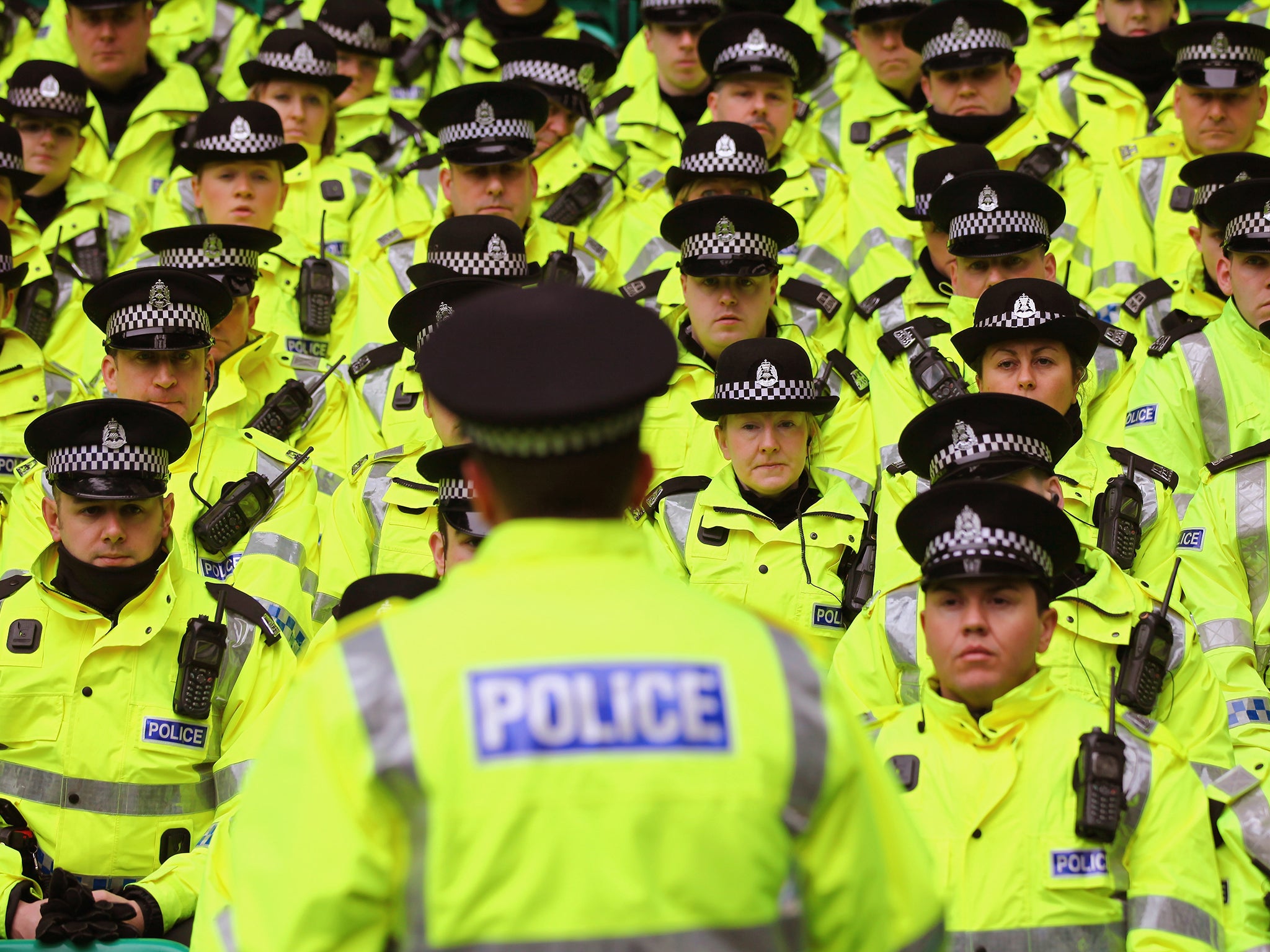Police morale falling as officers feel undervalued and overworked, survey reveals
Police Federation says some officers are ‘finding it hard to put food on the table’

Police morale is falling as officers feel increasingly undervalued, underpaid and overstretched, a survey has found.
The Police Federation of England and Wales said the biggest contributor was the way police were being treated, including violent assaults seeing them stabbed, punched, bitten and headbutted during arrests.
Almost two-thirds of the 30,000 officers who responded to the association’s annual pay and morale survey said their personal morale was low – 5 per cent up on the previous year.
The vast majority blamed it on the way police are treated, closely followed by changes to policing, pay and benefits, their work-life balance, health and workload.
Warning: Graphic images below
Several police forces have reported rising assaults on their officers, leaving some with permanent injuries or mental trauma.
PC Heather Caruana, an officer with Surrey Police, felt “let down” by the courts after a man who headbutted her after she intervened to help a colleague walked free.
“It felt like I had been whacked with a chair,” she said of the incident, which left her scarred and unable to see out of one eye for five days.
The attacker was charged with actual bodily harm but received a 12-month discharge, with PC Caruana receiving £100 compensation.
PC Ben Jeffries had to have four months off work after being stabbed in the hand by a man who was self-harming, needing surgery, 12 stitches and intensive physiotherapy.
“I noticed blood everywhere, I wasn’t really sure where it was from,” said the Northamptonshire Police officer.
“Once I’d got him to the floor, I found that the blood was coming from my hand. It all happened so quickly.
“He was still trying to stab himself while he was on the ground, but I managed to get the knife out of his hand before calling for help.”
Steve White, chair of the Federation, said the “heroic” work of police had been highlighted by the terror attacks in Westminster, Manchester, London Bridge and Finsbury Park, but they “feel undervalued and under pressure”.
“We know that officers enjoy tremendous support from the British public as a whole, which is a source of enormous pride for them,” he added.
“But something has to give, and unfortunately the evidence shows that it is these officers’ personal welfare, as they struggle to meet rising demand with dwindling resources and 21,000 officers fewer than 2010.”
One in 10 officers said they could not afford essentials on their salary, with 72 per cent wanting increased pay, while feeling financially worse off because of rising living costs.
More than 86 per cent did not feel fairly paid considering the strain of their job, while 62 per cent said their workload was too high.
Mr White said pay has dropped by around 15 per cent in real terms since 2010, leaving officers “demoralised and despondent”.
“At a time when we have never needed the police more, with heightened threats almost weekly, we have many officers who are finding it hard to put food on the table for their families and are resorting to welfare schemes,” he added.
“Policing has always adapted to changing demands. But the struggle to meet these demands in recent years has changed the outlook for many officers.”
The survey showed a small increase in those who said they were proud to be in the police but two-thirds of respondents said they would not recommend their career to others.
The proportion of respondents planning to leave the service within the next two years also increased slightly to 12.3 per cent, although most new recruits say they intend to work as police officers until retirement.
Direct entry schemes, which see civilians recruited directly to senior ranks including superintendent or inspector rather than work their way up, were also rejected by three quarters of officers who believed the initiatives would have a negative impact on policing.
The Federation called on authorities to act on the results, which will be used in evidence to the Police Remuneration Review Body, Her Majesty’s Inspectorate of Constabularies, the College of Policing and Home Office, to urgently improve morale and welfare.
Chief Constable Andy Rhodes, from the National Police Chiefs’ Council, said the vast majority of British police forces already subscribe to a support service for the emergency services called Oscar Kilo.
He added: “Every day, police officers operate in a dangerous and stressful work environment that involves putting themselves in harm’s way to keep people safe, and as employers we have a duty to help officers manage the impact this has on their mental health and wellbeing.”
Despite rising pressures, application rates for jobs as police officers remain high, with 1,500 people applying for 300 places a Humberside Police earlier this month.
A spokesperson for the Home Office said: “Police officers across the country do a uniquely challenging and absolutely vital job keeping us safe and secure.
“It is an attractive career with competitive pay and the pension is among the best available. Job application rates are high with staff turnover and voluntary resignations remaining low compared with both the private and public sector.
“The welfare of the police workforce is of paramount importance and chief officers, supported by the College of Policing, are responsible for providing help and support so that officers can do their critical work.”
Subscribe to Independent Premium to bookmark this article
Want to bookmark your favourite articles and stories to read or reference later? Start your Independent Premium subscription today.
